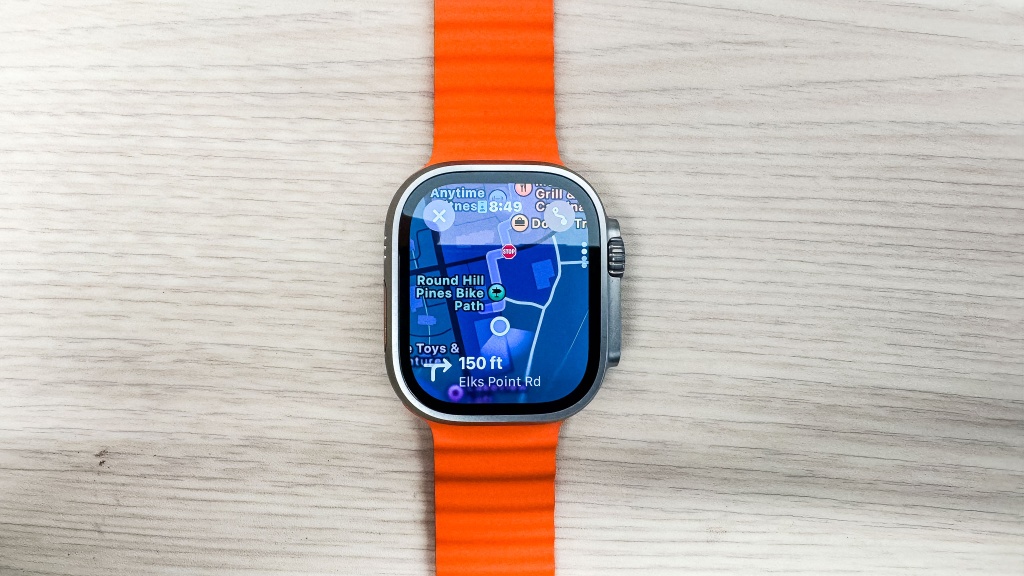How do we test smartwatches? We spend hundreds of hours doing extensive research, reading through manufacturer specifications, and comparing user experiences with different models to pick the most promising smartwatches available. From there, we purchase the top models and put them through extensive side-by-side testing, which we split into five metrics, weighted according to importance. We combined individual test results for an overall score within each metric, which helped us identify specific areas where some wearables shine, and others fail. The combined metrics determined the final scores for each device and the winners in our battle for the best smartwatch.
Smart Function
The first set of tests we performed made up our smart functions metric, and 40% of each product's final score. For our first test, we assessed the availability and quality of the proprietary apps that make up each watch interface, third-party apps and availability, the ease and experiences with making phone calls and texting, and also evaluated any native GPS mapping.
The top performing smartwatches are from the most mature brands that are able to offer intuitive user interfaces, performant and high quality apps, great app stores and ecosystems, and support for a broader range of third party apps. Apple products with the Apple App Store, and Samsung's version of Wear OS with the Google Play Store are two of the most capable ecosystems supporting how smart these watches are, but models running Watch OS that also support app downloads from the Google Play Store are becoming more and more prominent and mature.
Next, we looked at whether or not these products could receive phone calls and respond to text messages. Whether a wearable allows the user to answer a call, and if it just displays a text, or lets you talk and text back, varies from device to device.
With a growing number of payment processors and locations accepting wireless payment support from mobile devices, commonly referred to by the acronym NFC, we tested support for making payments from each wearable. We awarded points for the ability of each device to allow you to pay for things using wireless payment methods like Apple Pay, Google Pay, Samsung Pay, or Zepp Pay.
Health
Next we moved on to our health metric, which compared and scored the fitness tracking and monitoring features each watch offered, making up 30 percent of the final score of each device.
Individual tests within the metric included testing the accuracy of the step counter, determined by comparing the count shown on each watch to our manual count. We looked at GPS accuracy for pre-measured distances. We also tested the accuracy of heart rate monitoring against a chest strap monitor. We captured data both during rest and during a range of exercises.
Finally, we compared the ability of each watch to track various workouts, such as the number of preset profiles that were available, but also the depth of data and degree to which each model could capture data then let us interrogate that dataset.
Battery Life
Our third test metric evaluated battery performance and comprised 20 percent of each product's overall score. Here we tested the actual battery life of each device under normal with the GPS enabled, and also with the GPS disabled. We also tested the charging performance by measuring the time it took each device to charge from no charge to a full charge, and recorded the percentage of battery charge at 5 minute intervals.
Display
Our last metric evaluated the display of each device and weighted it to 10 percent of the final score of each model. We evaluated and scored the size of the screen, type of screen, the pixel density per inch, and scratch resistance. We also did a side-by-side test to observe outdoor visibility in a bright environment.
We conducted an In-house Mohs hardness testing of the glass on each model to measure true scratch resistance. We also used a light meter to record the brightness of each model using a custom 3D printed shroud to block out external light and place our sensor at the exact same position over each watch.
Conclusion
Choosing the right smartwatch without being able to pilot them all can be difficult, so we designed our scoring system and extensive individual tests and evaluations within each of our major metrics to help. If you are interested in seeing how each model that we tested performed, then take a look at the results of our comprehensive smartwatch review.



